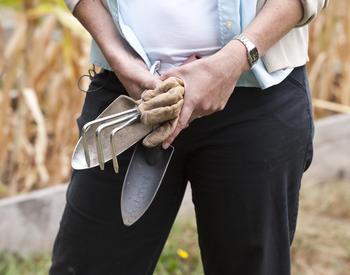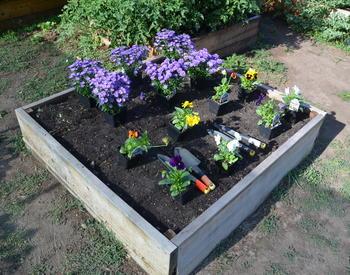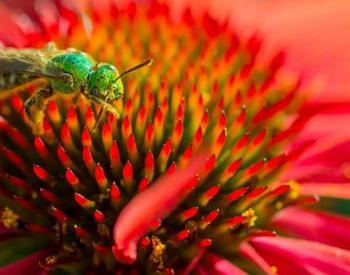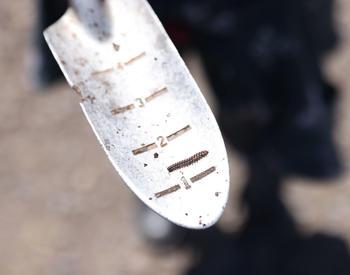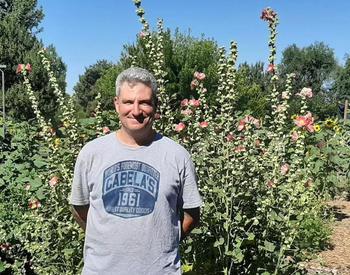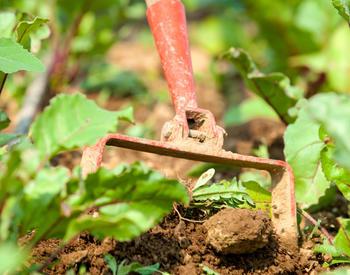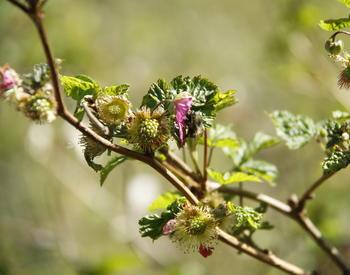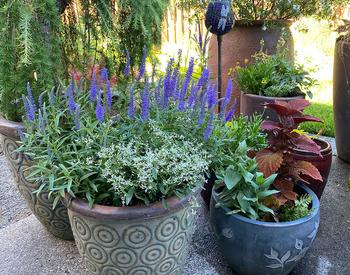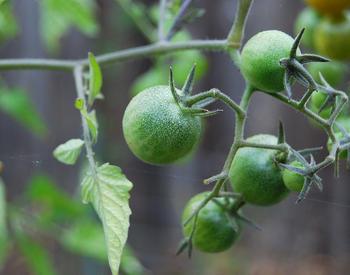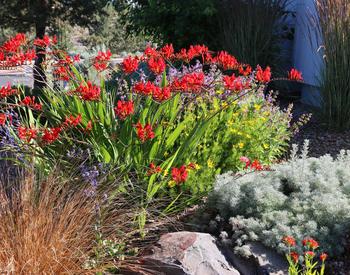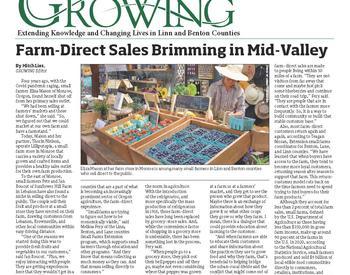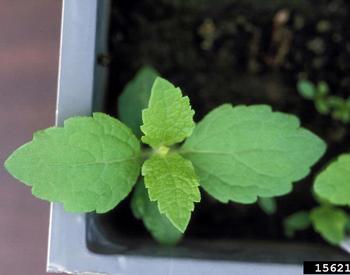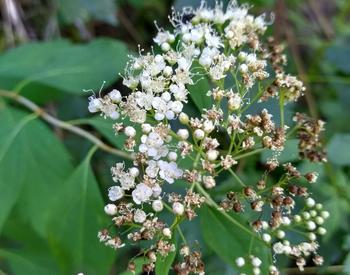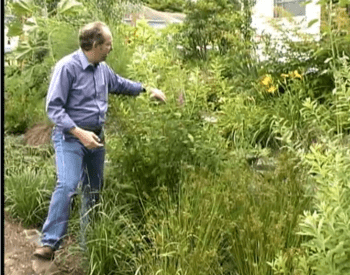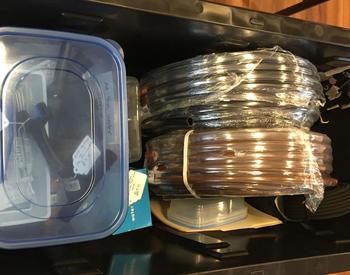CORVALLIS, Ore. – From climate change to wild bees, native plants to growing mushrooms, the Joy of Gardening conference offered a wide range of classes for both new and experienced gardeners.
Sponsored by the Oregon Master Gardener Association, which supports the Oregon State University Extension Master Gardener program, the two-day conference drew 150 to the CH2M Hill Alumni Center on the Oregon State campus in Corvallis.
A long line queued up to ask additional questions after Andony Melathopoulos, OSU Extension Service pollinator specialist, talked about searching out the more than 800 wild bees of Oregon. One of two keynote speakers at the event, Melathopoulos shared stories of volunteers hunting out these often-rare bees, some unseen for decades.
For instance, an alkali bee that pollinates a single plant – purple alfalfa – was found nesting in the salty, crusty soil of eastern Oregon, its only habitat in the world. Melathopoulos credits the volunteers in OSU Extension’s Master Melittologist program as the drivers behind efforts throughout the state to find the wild bees of Oregon. These community scientists work to populate the Oregon Bee Atlas, the largest database on native bees and the plants they’re associated with in the world. The atlas is associated with the Oregon Bee Project, a statewide collaboration to help safeguard Oregon bees that Melathopoulos helped organize.
“Our Master Melittologists are essential to populating the Oregon Bee Atlas,” he said. “This year-long, one-of-a-kind program creates the foundation for collecting scientifically robust records. These data are essential to conserving Oregon’s native bees – a priority of the Oregon legislature and a public that is passionate about saving pollinators.”
On the first day of Joy of Gardening, James Cassidy, a senior instructor and soil scientist in the College of Agricultural Sciences, started things off by talking enthusiastically about soil, which he told people is the basis of life. Like Melathopoulos, Cassidy’s winning personality and passion for his subject won over the audience and prompted not only a raft of questions but also a newfound respect and affection for soils.
“It’s all about soil,” said Cassidy, wearing a black T-shirt with the word “Soil” in all capitals on the front. “It’s where the nutrients that support plants come from and where they will return. Soil is the most diverse habitat on the planet – a single pinch of soil contains over a billion living organisms. Those organisms are cycling carbon, energy, water and nutrients and making them available to your garden plants; the veggies just come along for the ride. Bottom line: Soil is a complex habitat, a living thing. To maintain and improve soil, minimize disturbance and add organic matter.”
Continuing Cassidy’s theme, Signe Danler, OSU Extension online horticulture instructor, took the mystery out of mulch. Not all mulch – any material spread on the soil – is created equal, she said. Some do better at their job of suppressing weeds, improving soil structure, protecting the soil from erosion, moderating soil temperature and conserving water. Among the best are arborist chips and bark mulch. Best of all, though, are plants. A diverse, densely planted garden is the best mulch, she said.
“The right mulch applied at the right time reduces maintenance,” Danler said. “Almost anything is better than bare soil, which gets compacted from rain, erodes and attracts weeds. They all have their pros and cons.”
Other OSU Extension speakers and their topics included:
- Brooke Edmunds, Extension horticulturist, interim statewide Master Gardener coordinator and Master Gardener coordinator in Polk and Marion counties, on raised bed gardening.
- Alicia Christianson, Extension forester in Douglas County, on growing shitake mushrooms.
- Logan Bennett, Extension small farms coordinator and Master Gardener manager in Douglas County who gave two talks, one on pesticides and pest management, and the other on biological control of pests.
- Carrie Berger, Extension Fire Program manager, on fire-resistant landscaping.
- LeAnn Locher, Extension Master Gardener outreach coordinator, on the connection between gardening and Food Hero, an Extension program that works to help low-income Oregonians improve their health by increasing their consumption of fruits and vegetables.
- Sarah Cameron, Oregon Season Tracker coordinator, on the contributions of community scientists.
